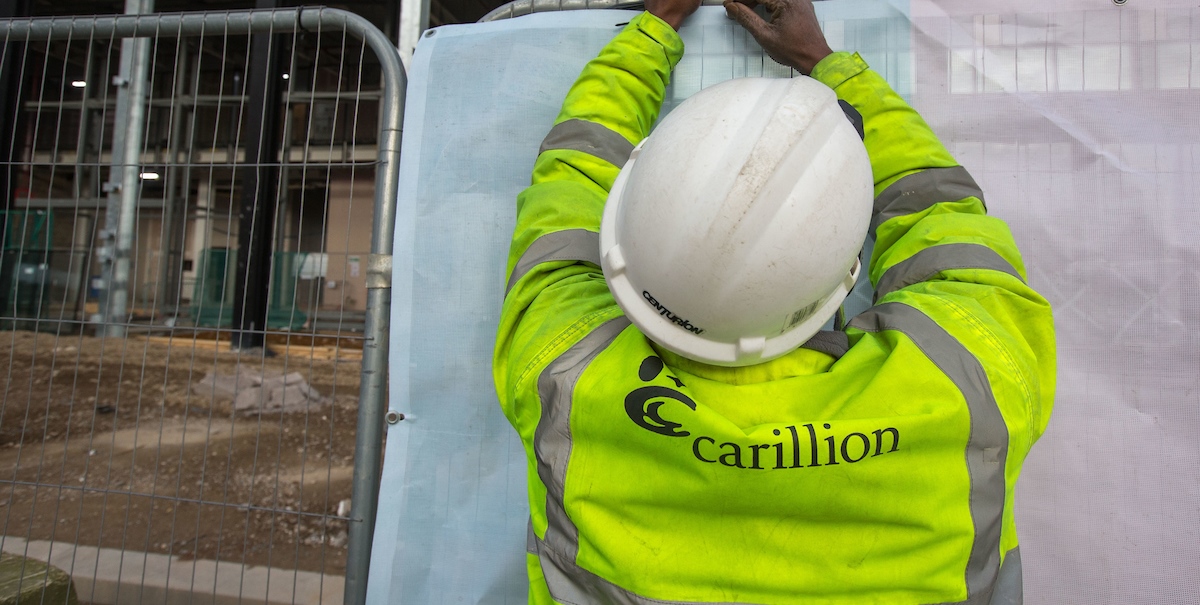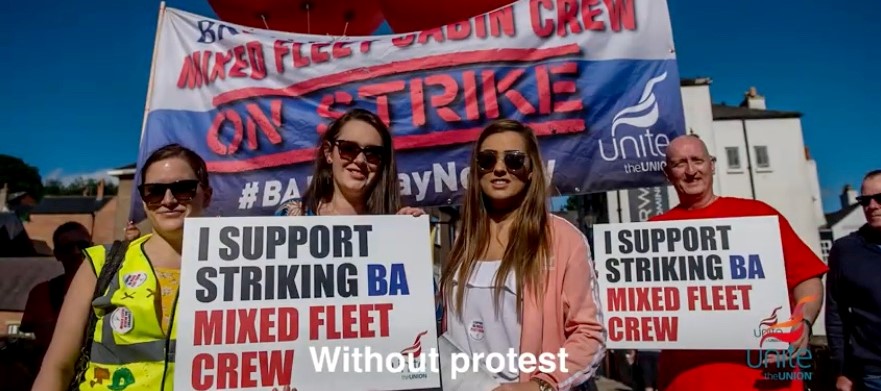‘On the level with asbestos’
Unite has blown the lid off the dangers cabin crew members face being exposed to toxic air – a scandal that’s being compared to asbestos exposure.
This morning (June 8) on the Victoria Derbyshire programme, Unite executive director for legal services Howard Beckett explained the work the union has taken on in representing 17 cabin crew members against British airlines in civil courts who’ve suffered symptoms of what’s known as aerotoxic syndrome.
The programme also featured current and former cabin crew members who’ve suffered from neurological symptoms such as losing the ability to move a limb, as well as chronic fatigue, headaches and nausea.
Unite, which represents 20,000 flight staff, has opened a hotline for cabin crew members who think they might suffer from the syndrome, which is thought to be caused by toxic â€fume events’, in which engine oil containing organophosphates and other dangerous chemicals may leak from the engine into the cabin itself.
The airline industry has so far refused to acknowledge the problem, contending that there is no evidence linking contaminated air with dangers to public health.
But on the Victoria Derbyshire programme, documents submitted to the Civil Aviation Authority (CAA) show at least hundreds of fume events happening each year. One report recorded 251 fume events occurring on flights operated by British airlines between April 2014 and May of this year – with 104 reports of illness from these cases. In at least 28 cases, oxygen was administered.
Turning a blind eye
Beckett highlighted the fact that to date, testing of cabin air to determine a link between reported illnesses and contaminated air has not examined fume events specifically.
He also expressed concern that fume events are not being thoroughly recorded by the industry.
“I’m going to be sceptical about [fume event numbers provided to the CAA by the industry], considering all the anecdotal evidence we’ve had from our members suffering from fume events,” he said.
“The department of transport seems to think they can assess the quality of cabin crew air without a fume event and therefore say it’s safe,” he noted.
Beckett and other guests on the programme condemned the way in which the industry has failed to investigate a problem that’s affected thousands of flight staff and could be responsible for the sudden deaths of a Unite cabin crew member, aged 35, and a 43-year-old BA pilot. In both cases, coroners found high levels of toxins in their systems.
“It appears that everyone’s doing an exercise of turning away and not looking for the evidence as to what fume events actually cause,” Beckett argued.
“We’re dealing with an industry in which there’s a low life expectancy and with members who are exhibiting neurological symptoms. And we have an industry turning a blind eye to it,” he went on to say.
“What we need from the industry is honesty. We need the industry to say â€If there’s a problem, we’ll investigate it. And if we have to act, we will act.’”
“Substance that can kill”
Beckett argued that the dangers of exposure to toxic air in airplane cabins cannot be underestimated.
“We are dealing with a substance that’s used in chemical warfare,” he noted. “We are dealing with a substance that’s on the level with asbestos. We’re talking about a substance that can kill.”
Beckett contended that even though the industry is not explicitly acknowledging its workers suffering, it is otherwise behaving as though a problem may exist.
“The industry itself is reacting to this, and that itself is indicative of the fact that there is a problem,” he said. “The [Boeing] 787 [Dreamliner] has been specifically manufactured to avoid air going through the engine and therefore bleed events cannot occur.
“If we do have an industry that says there’s not a problem, we certainly have an industry that’s acting as though there is indeed a problem.”
Beckett said the claims Unite will bring against British airlines are out of grave concern for its members’ health and safety.
“This is about health and safety issues,” he said. “Our members are more concerned about the health and safety of the environment that they work in more than any compensatory figures that they might receive.
“As an industry they’ll have to react by either replacing their engines more regularly and using a different oil as a consequence or manufacturing planes in which air doesn’t go through the engine,” Becket noted, describing actions airlines might have to take if the claims are successful. And both of those have a cost associated with it.
“But the cost, in comparison, to saving people’s lives is nothing.”
Unite has previously called for a full public inquiry into the health effects of fume events.
Watch the full Victoria Derbyshire programme investigation here.
 Like
Like Follow
Follow


